Regional Cooperation Magazine


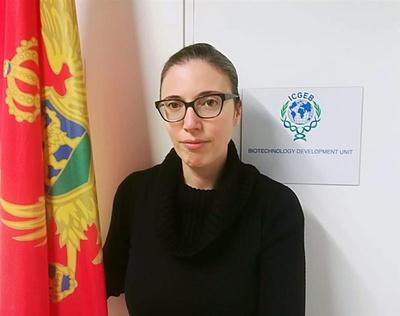
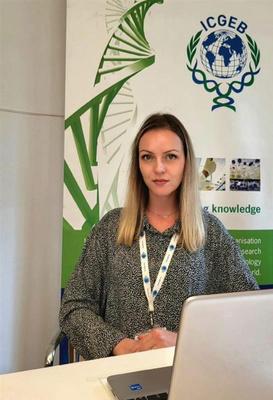
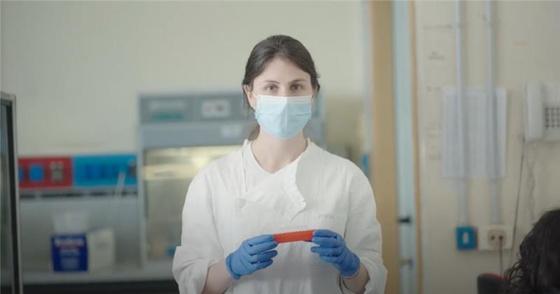

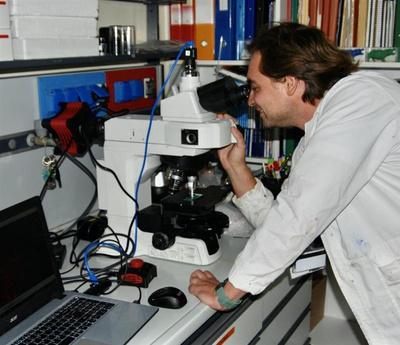
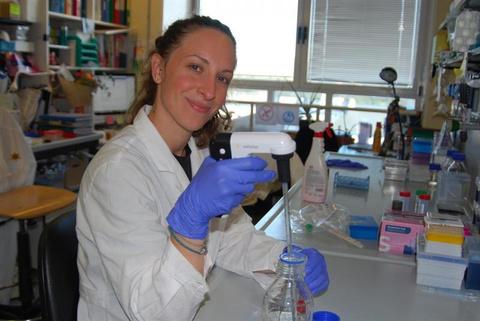
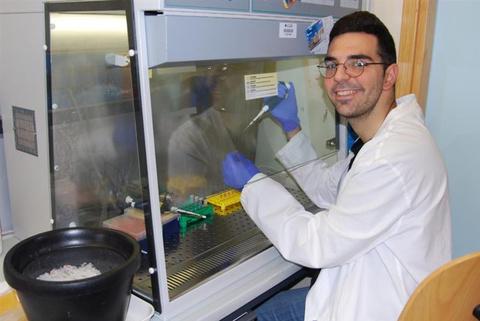
N.10 SSN 2784 9465 OCTOBER 2022 C r e d i t s T B F V n e t p r o j e c t
Director’s Editorial
Youth Fundamental Rights: Time for Youth to Take Charge of Change
Supporting NHRIs in monitoring fundamental rights aspects of the rule of law
From the Youth Employment Fund
Make Regional Collaboration Work
YOUTHShare Open Event - Four Years of Research and Social Intervention for young NEETs in the Mediterranean European Economic Area
YOUTHShare Colloquium / Mini-Conference - Creating Resilient and Sharing Spaces for Youth in Mediterranean European Economic Area and beyond
YOUTHShare Steering Committee Meeting
Blue Generation Project updates
From the Regional Cooperation Fund
The role of Youth Organisations in achieving European Youth Goals
Circular Based Waste Management and the European Youth Goals
European Youth Goals: Which is your priority (related to the peculiarities of your targeted countries) and why? Which could be the new EYG (now 11) considering this changing society in terms of inclusion and poverty reduction?
An October dedicated to European Youth Goals
A young beekeeper in a big project
EUTeens4Green - An open call to fund youth-led actions advancing the green transition in EU carbon-intensive regions covered by the Just Transition Fund

Recommendations developed for Norway and Sweden!
EU-WATERRES newsletter
Strategic
Finalist
Training
building
1 Regional Cooperation Magazine Contents
is out!
partnerships for
a democratic society in Europe
with aroma flavor
as a paramount feature in P/CVE initiatives Contributors & Credits 2 4 6 8 8 10 13 16 17 20 20 22 24 26 29 31 32 33 34 35 37 40
Director’s Editorial
Dear Friends,
I am putting down my thoughts and reflections and I see outside the window of my office a very sunny day. But it is not summer, not even spring. It should be autumn….. a season that this year seems to be late all over Europe. And, while this is a worrying factor, I am ‘happy’ to see that we kind of anticipated some issues that are now a priority in the socio-political agendas.
Watching the tv, at night, I hear a lot of experts confirming that this hot, at this time of the year, is something not really ‘standard’. And we were talking about it in some of our last editions, also with the Youth Employment Mag.
The demonstrated attention and dedication to actual challenges is something very important for us, as Fund Operator. This means that the level of engagement reached is great.

And I have to recognise as well that that we, this time considering the entire Family, are on the same path, especially when we talk about possible solutions. And I am very happy to include in this issue one contribution coming from one of our Youth Employment Projects, YES!. Simply because, participating at the European Regions Week, they demonstrated the concept I stated here above. Not surprisingly, the title of their contribution says ‘Make regional collaboration work’, and I invite all of you to read it to understand the meaning, and the concepts expressed which are putting us on the same path of the Fund for Regional Cooperation’s priorities.

I was also present, while online, at this side event. What I wanted to stress in that occasion, since I strongly believe it, is that everything starts from the ground, from the local level, and therefore the regional, before reaching the top. And this is the right framework to showcase which can be the solutions, particularly considering young people, which represent our future, and therefore the future of the policies we will construct. Not surprisingly, our ‘theme of the moth’ includes younger generations.
This time we are talking about goals and rights, indeed the question to our Projects is: «European Youth Goals: Which is your priority (related to the peculiarities of your targeted countries) and why? Which could be the new EYG considering this changing society?», of course to be declined considering the different priority areas. Our Tom concentrated on education, and not surprisingly the title of his piece is ‘Youth Fundamental Rights: Time for Youth to Take Charge of Change’, accompanied by this quote from J. D. Rockefeller: ‘Every right implies a responsibility; Every opportunity an obligation; every possession a duty’. This is another aspect that will be very important in our next future. Not surprisingly, this is strictly related to the next European Year, which seems to be focused on skills and competences.
2
Regional Cooperation Magazine
The theme of rights, in general, can be declined in a thousand different ways. And, to demonstrate our readers that there is always a thread that connects the Funds with every theme and with every project, I invite you to read the contribution received from one Regional Cooperation Project, the Supporting National Human Rights Institutions in monitoring fundamental rights and the fundamental rights aspects of the rule of law. The EU Fundamental Rights Agency (FRA), is in partnership with NHRIs and the European Network of National Human Rights Institutions (ENNHRI) to support NHRIs in monitoring fundamental rights and the fundamental rights aspects of the rule of law.

On 25 October 2022, all partners of the Project met in Sofia in order to take stock of project planning and implementation of activities to strengthen the capacity of NHRIs in monitoring fundamental rights and the rule of law. But they will tell you more about that in the next pages.
What I want to highlight is the firm commitment of each project to be able to find, through cooperation, possible solutions to problems that affect each of us, from education to climate change, from culture to rule of law and so on.
I recently participated to another side event related to the European Week of Regions and Cities, the workshop ‘Young people for Mediterranean cooperation’, which showcased inspiring cooperation stories of young people from both sides of the Mediterranean, celebrating their contribution to positive and constructive relations. I really felt and had the impression that a lot of stories and examples could reflect our same engagement. One of the main questions has been: «What need to change now?». Again, with respect to education, school, competences, rights, green, etc. What they said, and which I found similar to what we read in our Online Magazines, is that: «It is no more optional. It has to happen now. A lot of programmes are working for that, to bring positive pressure to policy makers».
Positive pressure. I like a lot that concept. I think we can englobe its meaning and spirit in our future conversations and events. It is what we have been trying to do, and what I am sure we will continue to do. And again, they also talked about ‘new challenges for Europe’s cohesion and priorities for cooperation: a lot of similarities, I think. A lot of young people, among the participants, talked about cooperation as ‘an act of recognition’. And not surprisingly, among the priorities they have listed, climate change was at the top of the list, followed by education, trainings and human rights.
Related to that, and I may be repetitive but I strongly believe we have to behave like a real Family, I would like you to check the final Steering Committee of the YOUTHShare 1.0, one of our YE Projects that you already know for sure. Why? Because it is talking about ‘four years of Research and Social Intervention for young NEETs in the Mediterranean European Economic Area’. And the Regional Cooperation Projects have as well a lot to do with research and intervention. Finally, since it is taking place at the beginning of November (also online at this link, and with some other details here), I thought it was interesting to announce it here before, despite this is the Regional Cooperation Mag, but I think you can find there some inspiring practices.
With inspiring practices for a positive pressure, I end here this intro. There is nothing left for me to do but wish you a good read… :)
As usual, stay tuned for future news.
Gian Luca Bombarda The Fund Director

Regional Cooperation Magazine
Youth Fundamental Rights: Time for Youth to Take Charge of Change
Rights are the rules that help make everyone equal. Really?
The world’s population is projected to reach 8 billion on 15 November 2022. More than 30 per cent are in the 15-30 age group. Global demographics have changed dramatically in recent decades. There are more adolescents and young people alive today than at any time in human history. Increasingly educated and healthier than previous generations, they have access to more information, new technologies and wider social networks which can be used to promote and protect human rights. At the same time, the vast majority of young people are in the poorest countries, that are most exposed to climate change, poverty, disease and most affected by conflict.
Young people have always been major drivers of political, economic and social change, but is that youthful exuberance tempered by political and institutional reticence to allow youth move from the roles of advocates and drivers to participants in the policy making and legislation? Youth certainly has their champions at the highest level: Vera Jourova, European Commission Vice-President for Values and
Transparency: "It is high time that young people get their lives and voices back and are given the possibility to do what they do best - question, debate, discuss and shake us politicians." But youth is a national policy area, so EU-level harmonisation is not possible. The EU therefore can only play a supporting role. Repeated surveys of group after group in society indicate levels of tolerance and inclusion increase as the respondents become younger. Young people are somehow the guardians of the respect for diversity and tolerance and values in societies. Put another way, young people are the drivers of change. Not just for themselves, but for all.
This is borne out by the words of Silja Markkula, President of the European Youth Forum: "What inspires me is really that we never stopped caring. We never stopped fighting. We never stopped fighting for the things that matter to us, whether it's climate, employment, education, all those things that have to do with our fundamental rights."

And this is where we are today, living with a human rights system put in place over many decades. A system that offers inspiring visions
of what our societies can look like. “A common vision of what makes us human” is how the UN Secretary General viewed it. Beyond that vision is there also a roadmap, a pathway through treaties and commitments, to knock down the cul-de-sacs built to thwart youth and their NGO groupings from genuine participation in the legislative and policymaking areas?
Today there are a staggering more than 10 million NGOs in the world. Economist Kenneth Boulding observed that the rise of the NGO “is perhaps one of the most spectacular developments of the twentieth century, although it has happened so quickly that it is seldom noticed.” A similar sentiment was expressed by Harvard historian Akira Iriye, who wrote that to ignore the NGO is to “misread the history of the twentieth-century world.”
A majority of this global NGO family members are in the youth category. Is this astronomical number of organisations an indictment of the failures of government on an international and national level? Is it NGOs that have to carry the flag of fundamental (human) rights, fill all the gaps left by self-serving governments? Those
4
Regional Cooperation Magazine
“Every right implies a responsibility; Every opportunity an obligation; every possession a duty.”
J.
D. Rockefeller
questions offer themes for many theses.
There is an inherent weakness in the architecture for the protection of human rights, and also for civil society. Creating the space for an energetic, protected civil society should be an essential element of the national and international architecture. This space for youth organisations is constantly shrinking, along with the status and mechanisms for them to engage and actively participate in public affairs. In a nutshell, young people are mostly not involved in decisionmaking in sectors to which they provide essential services and support. A frustrated OECD official, remarking on the extent to which national human rights bodies and ombudsmen are not mandated to deal with youth issues (14 per cent was the figure quoted) recently said: “The entire human rights community has been largely excluded from decision-making in most places.
In reaction to the above, the international corpus talks a good game but misses the target when in front of the goal.
The Council of Europe promotes opportunityfocused youth policies that empower young people and engage them in the development of democratic, inclusive and peaceful societies, thus “making” young Europeans "agents of change".
The Treaty on the Functioning of the European Union and the Charter of Fundamental Rights of the EU both explicitly prohibit discrimination on the grounds of age. The Charter is legally binding on EU institutions as well as Member

States when they are implementing European law at the national level. The Charter can be used to ensure compliance of European law with certain aspects of youth rights.
But how far are we from the below desiderata of the United Nations?

Youth rights must be legally recognised through a binding International Convention on the Rights of Young People with an accompanying monitoring mechanism.
Policies and legislation must be rights-based and do better at tackling all grounds for discrimination, including age.
Perhaps it’s time to heed the words of President Higgins of Ireland, who in his inaugural address, expressed his wish to engage with young people as part of a series of seminars during his Presidency. He called on young people to Charge of Change.’
Thomas Mc Grath

5 Regional Cooperation Magazine
Supporting NHRIs in monitoring fundamental rights aspects of the rule of law
Partners’ Meeting & ENNHRI high-level network meeting: Revisiting our approach to joint work on rule of law
NHRI staff in using the Charter in their work. Implemented in seven NG/EEA Grants beneficiary states – Latvia, Poland, Slovakia, Slovenia, Croatia, Bulgaria and Cyprus -the project will also develop the capacity of NHRIs

Pictures: ©ENNHRI
The EU Fundamental Rights Agency (FRA) in partnership with NHRIs and the European Network of National Human Rights Institutions (ENNHRI) carries out an EEA/Norway grants funded regional project to support NHRIs in monitoring fundamental rights and the fundamental rights aspects of the rule of law. The project aims to strengthen the role of NHRIs in the enforcement of the EU Charter of Fundamental Rights at the national level, including by broadening their institutional knowledge base and building the capacity of
to monitor the Charter compliance in the implementation of EU funds, as foreseen by the Common Provisions Regulation for the EU Funds. The following National Human Rights Institutions, from the countries listed above are participating in the project: Ombudsman of the Republic of Bulgaria, Ombudsman of the Republic of Croatia, National Centre for Human Rights of Slovakia, Commissioner for Human Rights of Poland , Commissioner for Administration and the Protection of Human Rights (Ombudsman) , Human Rights Ombudsman of the Republic of Slovenia , and The Ombudsman of the Republic of Latvia.

On 25 October 2022, all partners of the project – lead partner: FRA; expertise partner: ENNHRI and seven NHRIs partners met in Sofia in order to take stock of project planning and implementation of activities to strengthen

the capacity of NHRIs in monitoring fundamental rights and the rule of law, by increasing their engagement with relevant EU mechanisms that support fundamental rights and the rule of law on a national level. Reaching this goal will be prompted by revisiting methodology of the rule of law reporting as well as through supporting the development of national-level activities that increase impact from NHRIs’ reporting and other roles to promote and protect the rule of law and fundamental rights at national level.
Pictures: ©ENNHRI
6
Regional Cooperation Magazine
The project is planning on holding a visibility annual event in early 2023 and will share many learnings from the project. The project outputs range from methodologies, toolkits on the EU Charter, capacity building events and analytical outputs concerning application of the EU Charter of Fundamental Rights, human rights architecture and EU Charter of Fundamental Rights case law. The project will run until the end of February 2024.
Pictures: ©ENNHRI
For more information: Eva Sobotka, Supporting Human rights System Sector, EU Agency for Fundamental Rights
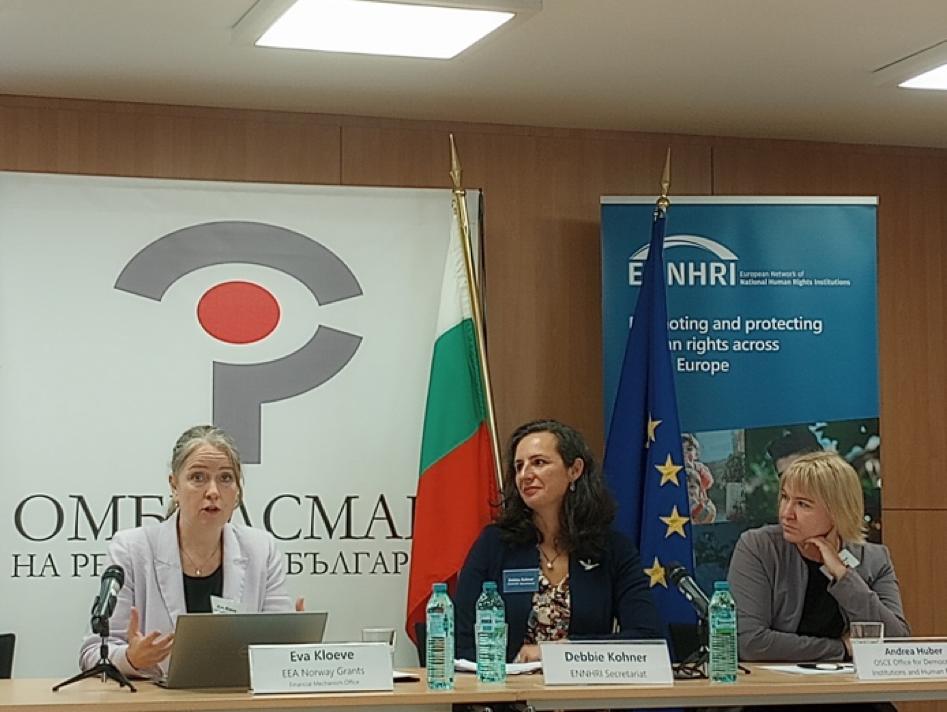

7 Regional Cooperation Magazine
FROM THE YOUTH EMPLOYMENT FUND
Make Regional Collaboration Work
With this article we would like to some insights on how regional collaboration among diverse partners might work. Additionally, we would like to highlight the importance, relevance and value of such collaboration to address unexpected and pressing needs using the example of the YES-project funded under the EEA Norway Grants Youth Employment initiative.

At the outset of the YES-project we were wondering whether interventions, such as mentoring, could be scaled up across different regions (scaling depth) and serve different target audiences (scaling reach). Another unanswered question was whether the intervention itself would need to adjusted to different needs and whether that could be done in a cost-efficient, more sustainable way. Little did we know at that time that life would present us with unprecedented challenges.
worked together in other projects, none had worked together with all partners.
One of our assumption has been that highly mentoring standardised services might be easier and more cost-efficient to scale. For organisation who have little or no experience it would be a straight forward process, for those who had more experience we expected more resistance as scaling scope would require to support all involved actors, i.e. mentors or coaches. When supporting over 1.000 mentors this can be a time consuming and expensive endeavour. Additionally, we wanted to have evidence and be able to draw learning and insights from working across different regions, with different target audiences, i.e. women, migrants/refugees, the young etc.) to be able to adjust and improve coaching and mentoring processes and related techniques. We formed a consortium of implementation parters with different levels of experience in mentoring (Greece, Spain, Italy, Poland), selected expertise partners who who have been involved in scaling mentoring services across different regions and contexts (U.K., Germany) and researchers for impact assessment (Greece, Germany). While some of the partners had
Parola, Spieß-Knafl, Thaler (2022) describe three distinct turning points in the collaboration between academics and practitioners – nudges, pushes, shoves– which reflect different levels of tensions and threat levels regarding collaboration among project partners and project outcomes. They suggest that such diverse collaborations need to be carefully facilitated and supported in order to make it work and lead to impactful opportunities for engaging and informing relevant stakeholders and possibly future programme design and implementation. Clutterbuck (2014) and Swenson (1997) have, among many others, highlighted the importance of taking time and offering different forms of support to help (diverse) teams managing conflicts and achieving valuable outputs and outcomes. Whilst we were aware that taking time for forming storming – norming – performing would be beneficial with a view towards project outcomes and impact, little did we know…
And then came COVID When the COVID-19 pandemic arrived in Europe we were all shocked and overwhelmed. It is fair to say that scaling scope (processes and techniques) got a new dimension. While the assumption was that the mentoring intervention would only need smaller adjustments to make it work across different regions and target audiences, now a significant shift was required. Services had to be transformed from off-line to online formats, new issues needed to be addressed, i.e. dealing with uncertainty, developing VUCA skills, dealing with isolation, restrictions to travel and do business, etc.). Did we know that our updated mentoring intervention would work? No! Did we have the answer(s)? Were we humbled by the enormity of the task at hand? Yes!
8
Regional Cooperation Magazine
The main reason why we were able to address the need to adjust quickly is based in trust-based partnerships. We were able to establish a working alliance based on trust which created an atmosphere where experimentation and learning has been encouraged. This atmosphere took away the pressure to deliver perfect results and focused more on potential learning from and with others. The diversity of the project partners allowed us to make use of available resources efficiently and swiftly. It allowed us to delegate tasks to those who were interested and experienced in contributing to improving existing interventions and programmes. Impact assessment and drawing insights and learning has been possible because we had researchers and academics on board. Expertise partners focused on improving and adjusting existing methodologies and approaches. Implementation partners tested and scaled up ideas and interventions as well as providing valuable insights and feedback.
We tried to highlight some aspects of the value and benefit of regional collaboration and indicated some options on how to make it work. However, it always needs courages donors such as EEA Norway Grants to such create opportunities – being fully aware that such a path can be challenging and might need skilful support to make it work and promote its outcomes. During the EU’s Regions and Cities week the region of Catalunya hosted a sideevent which allowed to present some learning and findings.
Response to Paradox,” Academy of Management Learning & Education, 21(3), pp. 369–393. doi: 10.5465/amle.2021.0235 Swenson, D. X. (1997) “Requisite Conditions for Team Empowerment,” Empowerment in Organizations, 5(1), pp. 16–16.
Joerg Schoolmann, Dr. Yiorgos Alexopoulos, Agricultural University of Athens
YES! Project
To learn more about the YES-project’s approach to mentoring, the experience from an implantation partner and the impact assessment please, go to the project’s website: https://youngentrepreneurssucceed.com/resources/ and watch the video recording at the EU’s Regions and Cities Week.
References: Clutterbuck, D. in Cox, E., Bachkirova, T. and Clutterbuck, D. (eds) (2018) The complete handbook of coaching. Third edn. Los Angeles: SAGE. Parola, G., Spiess-Knafl, W. and Thaler, J. (2022) “The Butterfly Effect: How Academics and Practitioners’ micro-Practices shape Turning Points in

9 Regional Cooperation Magazine
YOUTHShare Open Event - Four Years of Research and Social Intervention for young NEETs in the Mediterranean European Economic Area


November 4 2022, 15.00 – 18.00 CET / 16.00 – 19.00 EET
A hybrid event taking place online and in Rhodes, Greece.
November 2022 marks four years into the implementation of the research project YOUTHShare. After years of combined and intensive research, analysis and social intervention, the project reaches a turning point in which it highlights the best practices and furthers their implementation. The aim of the Open Event is twofold; i) to invite other projects and policymakers to assess the results of the project, and, most importantly, to discuss its successes and shortcomings and ii) to critically reflect upon what more needs to be done against youth unemployment and disengagement.
During those years YOUTHShare implemented a multi-scalar methodology and tested the effectiveness of close cooperation between the Transnational Research Network and the agile Transnational Employment Centre in bringing about new knowledge and support to young NEETs (Not in Employment Education or Training). The Open Event will be an attempt to ascertain the validity of the project’s achievements and examine that achievements’ potential for scalability.
The Open Event is organised with the support of the Ministry of Culture and Sports - Dodecanese Ephorate of Antiquities and is part of the events for the European Year of Youth
In order to present a comparative assessment and create further synergies, other projects funded by Iceland, Liechtenstein and Norway through the EEA and Norway Grants Fund for Youth Employment are invited. The representatives of these projects along with scholars and staff from the Labour Geography Research Lab, Department of Geography, University of the Aegean will offer new insights and tested suggestions on how to reduce the NEET rates in regions of the EU South and beyond.
10
Regional Cooperation Magazine
PROGRAMME
FRIDAY, 4 NOVEMBER 2022 (EET)
15:30-16:00 Opening of the Open Event
16.00 – 16.15 Open Event Addresses
Mr Konstantinos Taraslias - Vice Mayor of Rhodes for Communication, Press and Etiquette
Pr. Eleni Theodoropoulou - Vice Rector of the University of the Aegean for Academic Affairs and Students’ Welfare
Pr. Ioannis Seimenis - Dean of the School of Humanities of the University of the Aegean
Mr Kostas Boukouvalas - Researcher, Labour Institute of the Workers’
General Confederation of Greece
Mr Gian Luca Bombarda - Director of the Funding Operator of the EEA and Norway Grants Fund for Youth Employment
16.15 – 17.15 Session A: YOUTHShare: A Place for Youth in Mediterranean EEA. Resilient and sharing economies for NEETs

Chair: Stelios Gialis (University of the Aegean)
- ‘Τhe YOUTHShare project’
Nektaria Marava (Network for Employment and Social Care)
Anne Hege Strand (Fafo Institute)
- ‘The Role of the Transnational Employment Centre’
‘The Key Account Managers as focal point: From NEET training to internships’
Nicola Vita (former local manager GAL La Cittadella del Sapere) o
‘NEETs identification: Challenges and solutions’
Claudia Caggiano (GAL La Cittadella del Sapere, Italy)
‘Training NEETs: A skills multiplier’
‘TheTrainingMaterial’
Ioannis Pissourios (Neapolis University Pafos, Cyprus)
The e-learning platform’
Markella Papanicolaou (CARDET, Cyprus)
‘Facilitating Entrepreneurial Aspirations’
‘TheMentoringScheme’
Constantino Kounas (ARLAB, Italy)
‘TheNetworkingPlatform’ Markella Papanicolaou (CARDET, Cyprus)
17:15 - 17:30 Discussion, Q&A session
17:30 - 17:45 Coffee break
17:45 – 18.45 Session B: Social Innovation and the Fund for Youth Employment Projects
Chair: Ioannis Papageorgiou (University of the Aegean)
- ‘Cowork4YOUTH: Collaborative and Sharing Workspaces. Policies for Youth in Peripheral EEA Regions’
Savvas Alexandros Pavlidis (Rhodes Centre for History and Social Research) & Aggeliki Demertzi (UEHR)
- ‘YES!: Young Entrepreneurs Succeed’ Yorgos Alexopoulos (Agricultural University of Athens) & Eleni Bletsa (Development Agency of Karditsa)
- ‘e-ResLab Aegean: Observatory of Geo-spatial Technologies and Analyses for Employment and Resilience in Med EEA area’
George Sykas (University of the Aegean)
- ‘WebGIS-based observatories as a tool for enhancing youth employment in high-skilled sectors: The case of the ‘e-ResLab Aegean’’
Anna Saroukou (University of the Aegean, Greek representative at the EEA and Norway Grants Youth Forum 2022)
18:45 - 19:00 Discussion, Q&A session
19:00 Open Event Closure
11
Regional Cooperation Magazine
Presenters - Contributors
Dr. Yorgos Alexopoulos: Researcher, Agricultural University of Athens Eleni Bletsa: Coordinator, Implementation Department of the Development Agency of Karditsa, Greece
Claudia Caggiano : Key Account Manager, Italian Branch of the YOUTHShare Transnational Employment Centre
Aggeliki Demertzi: General Coordinator Cowork4YOUTH, Institute of Urban Environment and Human Resources, Panteion University
Dr. Stelios Gialis: Associate Professor, University of the Aegean, Greece.
Principal Investigator of the YOUTHShare Project
Dr. Anne Hege Strand: Researcher, Fafo Institute
Constantino Kounas: Local Manager, ARLAB
Nektaria Marava: Researcher - Career Counsellor, Network of Employment and Social Care

Dr Ioannis Papageorgiou : Communication Manager YOUTHShare, University of the Aegean Markella Papanicolaou: Local Manager, CARDET Savvas Alexandros Pavlidis: Communication Manager Cowork4YOUTH, Rhodes Centre for History and Social Research Dr. Ioannis Pissourios: Associate Professor, Neapolis University Pafos Anna Saroukou: Assistant Researcher, University of the Aegean George Sykas: PhD Candidate, University of the Aegean Nicola Vita: former Local Manager, GAL La Cittadella del Sapere
Join YOUTHShare’s Open Event Zoom Meeting
https://aegean-gr.zoom.us/j/97475015358? pwd=Y3hSV2kxTnNTdzBHL21udWlURzlaQT09
Meeting ID: 974 7501 5358, Passcode: 875440, Join by SIP
97475015358@zoomcrc.com
YOUTHShare Project
12
Regional Cooperation Magazine
YOUTHShare Colloquium / Mini-Conference - Creating Resilient and Sharing Spaces for Youth in Mediterranean European Economic Area and beyond

November 5 2022, 9.00 – 13.00 CET / 10.00 – 14.00 EET

A hybrid event taking place online and in Rhodes, Greece.
The aim of the YOUTHShare Colloquium / Mini-Conference is to foster a wide discussion between renowned scholars, academics and junior researchers from different institutions and disciplinary backgrounds working in the field of youth employment and studying policies for young NEETs.
The Colloquium/ Mini Conference is organised with the support of the Ministry of Culture and Sports - Dodecanese Ephorate of Antiquities and is part of the events for the European Year of Youth.
The economic crisis of 2008/2009 has increased unemployment and insecurity among young people. The European Union's (EU) response through policy frameworks such as the Youth Guarantee (YG) Action Plan has not yet achieved significant results, especially for the countries of Southern Europe. Somewhat paradoxically, these programs, although designed to address youth unemployment and precarity, may be contributing to it. Specifically, structural inefficiencies are systematically covered under further labour flexibilisation, which exacerbates precarity, especially amidst recession and crisis. Moreover, the core/periphery polarization within the EU means that youth policies play out in completely different ways at different places. In this context, social background, gender, class, education, identities, and the wider economic environment, are key socio-spatial factors that determine the geographically unequal spread of NEETs across regions.
The mini-conference will seek to address these issues and map the structural and socio-spatial parameters of youth unemployment and precariousness. Furthermore, it will explore the challenges and opportunities for spatiallyinformed responses of youth to the multiple contemporary crises.
13
Regional Cooperation Magazine
PROGRAMME
SATURDAY, 5 NOVEMBER 2022 (EET)
09:30-10:00 Welcome. Conference opening
10:00-10.10 Address of the Conference
Dr Stefanos Drakos, Vice-Mayor of Rhodes for Cultural Monuments and Urban Planning 10:10 - 11:00 Keynote
Dr David Farrugia (Newcastle University, Australia)
Senior Lecturer. Member of the Newcastle Youth Studies Network and a sociologist whose work addresses issues of unemployment, labour and labour force identity formation.
11:00-11:15 Coffee break
11:15-12:15 Session A: NEETs entrapped by labour market policies in the European Union (EU)
Chair: Konstantinos Gourzis & Stelios Gialis (University of Aegean)
“NEETs in youthspaces of the EU South: socio-economic drivers and gender divisions in between two crises”
Presenter: Athina Avagianou (University of Aegean)
Respondent: Anne Hege Strand (Fafo Institute)
“NEETs and Youth labour markets in the EU South: deciphering trajectories of resilience in an era of turbulence”
Presenter: Effie Emmanouil (University of Aegean)
Respondent: Konstantinos Boukouvalas (Labour Institute, Conf. of Greek workers)
“Deconstructing the NEET stereotypes; When policies on more education and training cannot be considered as a necessary prerequisite”
Presenter: Carlos Pesquera - Alonso (Catholic University of Murcia)
Respondents: Praxedes Munoz Sanchez (Catholic University of Murcia)
& Theodoros Iosifidis (University of Aegean)
12:15-12:30 Discussion, Q&A session
12:30-12:45 Coffee break
12:45-13:45
Session B: NEETs and youth employment, challenges and policy responses
Chair: Athanasios Kizos (University of Aegean) & Ioannis Pissourios (Neapolis Pafos)
- “An EU Youth Employment Policy Overview: Defining the conjuncture”

Presenter: Ioannis Papageorgiou (University of Aegean)
Respondent: Nektaria Marava (NESC Network for Employment and Social Care)
“Being a NEET in the EU South: Challenges and opportunities”
Presenter: Georgios Chatzichristos (Aristotle University of Thessaloniki & University of Aegean)
Respondent: Nikos Kapitsinis (University of Copenhagen)
“Addressing Youth Unemployment and Inactivity in Regions under Energy Transition: Critical aspects and policy responses”
Presenter: Vasiliki Krommyda (National Technical University of Athens)
Respondent: Konstantinos Gourzis (University of Aegean)
13:45-14:00 Discussion, Q&A session
14:00 Conference closure
The YOUTHShare Conference Scientific and Organizing Committee: Athina Avagianou, Giorgos Chatzichristos, Effie Emmanouil and Stelios Gialis
14
Regional Cooperation Magazine
Presenters - Discussants
Carlos Pesquera – Alonso: PhD candidate, Catholic University of Murcia. Early-stage researcher of YOUTHshare project
Athina Avagianou: PhD candidate, University of the Aegean. Early-stage researcher of the YOUTHshare project
Konstantinos Boukouvalas: Researcher, Labour Institute, General Confederation of Greek Workers
Dr. Georgios Chatzichristos: Adjunct lecturer, Department of Political Sciences, Aristotle University of Thessaloniki. Post-doctoral research of the YOUTHshare project
Effie Emmanouil: PhD candidate, University of the Aegean. Early-stage researcher for the YOUTHshare project
Dr David Farrugia: Professor, Newcastle University, Australia
Dr. Stelios Gialis: Associate Professor, Labour Geography Research Lab, University of the Aegean, Greece. Principal Investigator of the YOUTHShare Project

Dr. Konstantinos Gourzis: Adjunct lecturer, University of the Aegean. Postdoctoral research of the e-ResLab Aegean- Observatory of Technologies & Analyses for employment and Resilience in Euro-Med area
Dr. Theodoros Iosifidis: Professor, University of the Aegean
Dr. Nikos Kapitsinis: Assistant Professor, University of Copenhagen
Dr. Athanasios Kizos: Professor, Rural Geography Research Lab, University of the Aegean. Head of the Geography Department
Vasiliki Krommyda: PhD candidate, School of Surveying and Geoinformatics Engineering, National Technical University of Athens
Nektaria Marava: Researcher, Network of Employment and Social Care
Dr. Ioannis Papageorgiou: Adjunct lecturer, University of the Aegean. Communication manager of the YOUTHShare project
Dr. Ioannis Pissourios: Associate Professor, Neapolis University Pafos Dr. Praxedes Munoz Sanchez: Lecturer, Catholic University of Murcia Dr. Anne Hege Strand: Researcher, Fafo Institute, Norway
Join YOUTHShare’s Conference Zoom Meeting
https://aegean-gr.zoom.us/j/92026031689?
pwd=WkZWQTZhdkJqTERwNzhNckNXSThYQT09
Meeting ID: 920 2603 1689, Passcode: 665671, Join by SIP
92026031689@zoomcrc.com
YOUTHShare Project
15
Regional Cooperation Magazine
YOUTHShare Steering Committee Meeting
November 4 2022, 9.30 – 12.30 EET / 8.30 – 11.30 CET A hybrid SC taking place online and in Rhodes, Greece.
PROGRAMME
FRIDAY, 4 NOVEMBER 2022
9.00 – 9.15 Welcome: Opening of the Steering Committee Meeting
Mr. Gian Luca Bombarda - Director of the FO of the EEA & Norway
Grants Fund for Youth Employment
TBA - Representative of the UoA Research Committee
9.15 – 10.30 Session A: Assessment of the 8th reporting period and the overall progress
A1: Overall coordination, management and financial progress
Stelios Gialis - Project Manager and Principal Investigator, UoA
Eirini (Irene) Mprezetou - Financial Manager, UoA
Nikos Christoforides - Executive Financial Operator, UoA Research Committee
A2: Progress in communication
Dr Ioannis Papageorgiou - Communication Manager, UoA
A3: Progress per Working Package (WP1, WP2, WP3 & WP4, WP5)
Athina Avagianou & Effie Emmanouil, UoA - WP1
Claudia Caggiano, GAL - WP2
Natia Anastasi, NUP & Nektaria Marava, NESC - WPs 3 & 4
John Pissourios, NUP - WP5
10.30 – 10.50 Coffee break
10.50 – 12.00 Session B: YOUTHShare Project #2: Visions and planning of
B1: Expanding the Transnational Research Network

Dr George Chatzichristos - Senior Researcher, UoA
B2: Planned deliverables and outcomes of the Transnational Employment Center
Aimilia Markaki - Key Account Manager, Greece
B3: The expert partner’s view and contrtibution
Dr Anne Hege Strand - Expert Researcher, Fafo Institute
B4: Collaboration possibilities with other projects
Nicola Vita - Cowork4YOUTH project
Join YOUTHShare’s Steering Committee Meeting
Meeting ID: 916 3738 2229 Passcode: 348345
Topic: Open Event 2022, Rhodes, 04-05.11.2022 (Project Partners)
Time: Nov 4, 2022 09:30 Athens
Join Zoom Meeting
https://aegean-gr.zoom.us/j/91637382229?
pwd=TTdZdjNmQUlIQlJkNDMyZGtaZ0xudz09
Meeting ID: 916 3738 2229 Passcode: 348345
YOUTHShare Project
16
outputs
Regional Cooperation Magazine
Blue Generation Project updates


Continues its efforts and has attracted more than 23,000 youth NEETs to the Blue Economy through promotional visits organized at almost 300 organizations (high-schools, universities, VET schools, NGOs, and local communities) in Bulgaria, Greece, Poland, Portugal, Romania, and Spain.

360o Virtual Reality Videos for 2 Blue Economy sectors: Fisheries and Marine Biotechnology
Clube developed the VR Video in the Marine Biotechnology sector.You can watch the video here and see the daily routine of the Research Group on Bio adhesion & Biomimicry of the Faculty of Sciences of the University of Lisbon.
Militos Consulting S.A. developed the VR Video in the Fisheries sector. You can watch the video here and discover what it's like to work at the Piraeus fish wharf, the largest fish market in the Balkans.

17
Regional Cooperation Magazine
The Blue Generation International Conference


The Blue Generation International Conference was held in Palma de Mallorca on September 29th, and brought together the Blue Economy Sectors and youth. We had very inspiring speeches and experiences, not only from Blue Economy experts, but also from EU and OECD officials, representatives of NGO's, governmental and public institutions, inclusion centres and most important from our youth, who described how they have benefited from the Project.
one more field of the shipbuilding science" said Dimitris, who studies naval engineering in the University of West Attica in Greece.
During the 4-day training organized by Militos Consulting S.A., we provided 12 hours of training in nautical theory and the basic principles of boat carpentry at a shipyard and in a carpentry workshop. Some of the participants have already been chosen by companies in the broader #shipbuilding_and_maintenance_sector for employment and all of them received a digital badge and a certificate.
Blue Generation Project
"The assistant boat and ship carpenter course of BlueGeneration Project was a really good opportunity for me to specialize practically my knowledge in

18
Training seminar on the specialty of the Assistant Boat and Ship Carpenter
Regional
Cooperation Magazine

19 Environment, Energy, Climate Change and Low Carbon Economy Culture, Civil Society, Good Governance and Fundamental Rights and Freedoms Justice and Home Affairs Innovation, Research, Education and Competitiveness Social Inclusion, Youth Employment and Povery Reduction
The role of Youth Organisations in achieving European Youth Goals
An interview from the President of BEST for the BLUE-GREENWAY Project.
Tell us a few words about BEST Board of European Students of Technology
BEST AISBL, Board of European Students of Technology, is a constantly growing, apolitical, non-profit, non-representative and voluntary international association of European students of technology. BEST strives to help European students of technology to become more internationally minded, by reaching a better understanding of European cultures and developing capacities to work on an international basis. Since 1989, BEST provides communication, cooperation and exchange possibilities for students all over Europe. Aiming to empower diversity by developing students, BEST has 3 main pillars of activities: Complementary Education, Educational Involvement and Career Support.
What is your opinion about the connection of the EU with Youth. Which are your expectations from the EU?

The Youth has an important role towards the future and the initiation of the actions that will take place. If the Youth is included in the process and understands the importance of being a leader in the key initiations, then there is a higher probability of having a direction towards a better future. Therefore, the EU should be connected with the Youth and having strategies like with the EU Youth Goals is important.
matter the background, the country or the town (since there are 88 Local Groups in 31 Countries) has an equal chance of participation in every decision-making and opportunity that BEST offers (whether it would be to elevate within the organisation or quality career opportunities through our partners). Additionally, with the creation and establishment of the Code of Conduct, we aim to offer the BEST experience to every student that participates on our activities.
Long Term Strategic Plan and connection with Climate
Once every three years, BEST is creating a Long Term Strategic Plan in order to ensure the development of main objectives/themes. One of the main Focus Areas is connected with SDG 13 “Climate Action”. It is an indisputable fact that the climate change impacts are significant and changes should be done. BEST, as a STEM students organisation, can foster discussions, raise awareness among students of technology and provide them with opportunities to learn about climate change. Through our partnerships, activities and internal practices we are contributing to this area.
9th Environment for Europe Ministerial Conference
This month is the EU Youth Month. Which of the 11 voted EU Youth Goals do you consider as your priority of your Institution?
All of the 11 voted EU Youth Goals are really great and BEST has its contribution to almost every one of them. For example, every student no
During October, BEST participated in the 9th Environment for Europe Ministerial Conference -a conference where member States within the UNECE region, organizations of the United Nations system represented in the region, other intergovernmental organizations, regional environmental centres, non-governmental organizations etc meet to discuss, decide and join efforts in addressing environmental priorities across the 56 countries of the UNECE region, and is a regional pillar of sustainable development. As a
20
Regional Cooperation Magazine
student organisation, we participated in two panel discussions where we discussed regarding youth participation in national, regional and international processes in the region, and also regarding Higher Education towards Sustainable Development, where we promoted the importance of including the Youth in the process.

Educational Involvement in addition to the Environment
As mentioned before, one of our main core activities “educational involvement” is dedicated to STEM education. Moreover, we aim to increase the awareness of students on issues related to engineering education and improving engineering education through the input of those students. On this area, we have the Educational Involvement Programme which main concept is to have a general broad topic (Research Topic) that is tackled in a survey and developed in BEST Symposia on Education (events where the academia, educational expert and student meets in order to discuss about relevant educational topics). Afterwards, the combined results from the survey and the BEST Symposia on Education are disseminated to the relevant stakeholders (through scientific papers, position papers and other means). The topic for the next two years will be Education for Sustainable Development.

21
BLUE-GREENWAY Project Regional Cooperation Magazine
Circular Based Waste Management and the European Youth Goals
For a transition to a green economy to take hold long term, involving youth is among the most important actions, as they will be the ones to carry on its values and practices and develop them further in the future. Working with youth in activities with an educational aspect on the principles and best practices of a circular economy, means nurturing a mindset that cares for the environment and creates abilities and skills for innovation all while economic activity is developed.
When considering the European Youth Goals, the Circular Based Waste Management project is in alignment with the goal for a Sustainable and Green Europe. Among other targets, the project aims to raise awareness on best practices among the populations of the municipalities it is working with and particularly among their youth.

were divided into teams and they oriented themselves in the surrounding forest under the guidance of tablets and answered questions on points such as “How much household waste does each Estonian produce in an average year?“. In the evening, there were celebrations under a bonfire, with games, singing and a disco.
The next day, all students could take part in the firefighting Olympics. The most important thing about the entire camp was that different trash cans were put out for sorting the waste and everyone participating were watchful that the right waste item would end up in the right trash can. After the camp, the young people had to clean up the camp site and, as always, put all the waste in the right place.
One example from this summer has been the traditional spring camp of Paide Hammerbeck Elementary School at the Metsajõe recreation centre in Estonia. During the two-day camp, students enjoy living in tents and socializing with their peers as smartphones are prohibited. The main emphasis is on enjoying nature and direct communication. The theme of the camp for this year was "Lets sort the trash". The students were tasked with bringing reusable food containers, which they had to wash themselves in water barrels. In doing so, students learned how to save water and think about preserving nature.
Various workshops were prepared to introduce waste management to the students through practice, as Paide Hammerbeck Elementary is a school that invites practice. An example is, sorting garbage into different composters over time. Older students were invited to perform a team landscape game. To this end, the teachers had prepared 40 questions on waste management. The students

22
Regional Cooperation Magazine
Activities like these that encourage to be vigilant over how waste is disposed of, help ensure youth understand the importance of waste management but more importantly, they help develop behaviours and enable youth with knowledge on practices and tools to tackle waste issues. Small changes in daily habits, help enable to transition and fully implement a circular economy in the future, reaching the Sustainable and Green Europe goal.
 Maritsa Kissamitaki, Karola Jaanof
Maritsa Kissamitaki, Karola Jaanof
Circular Based Waste Management Project
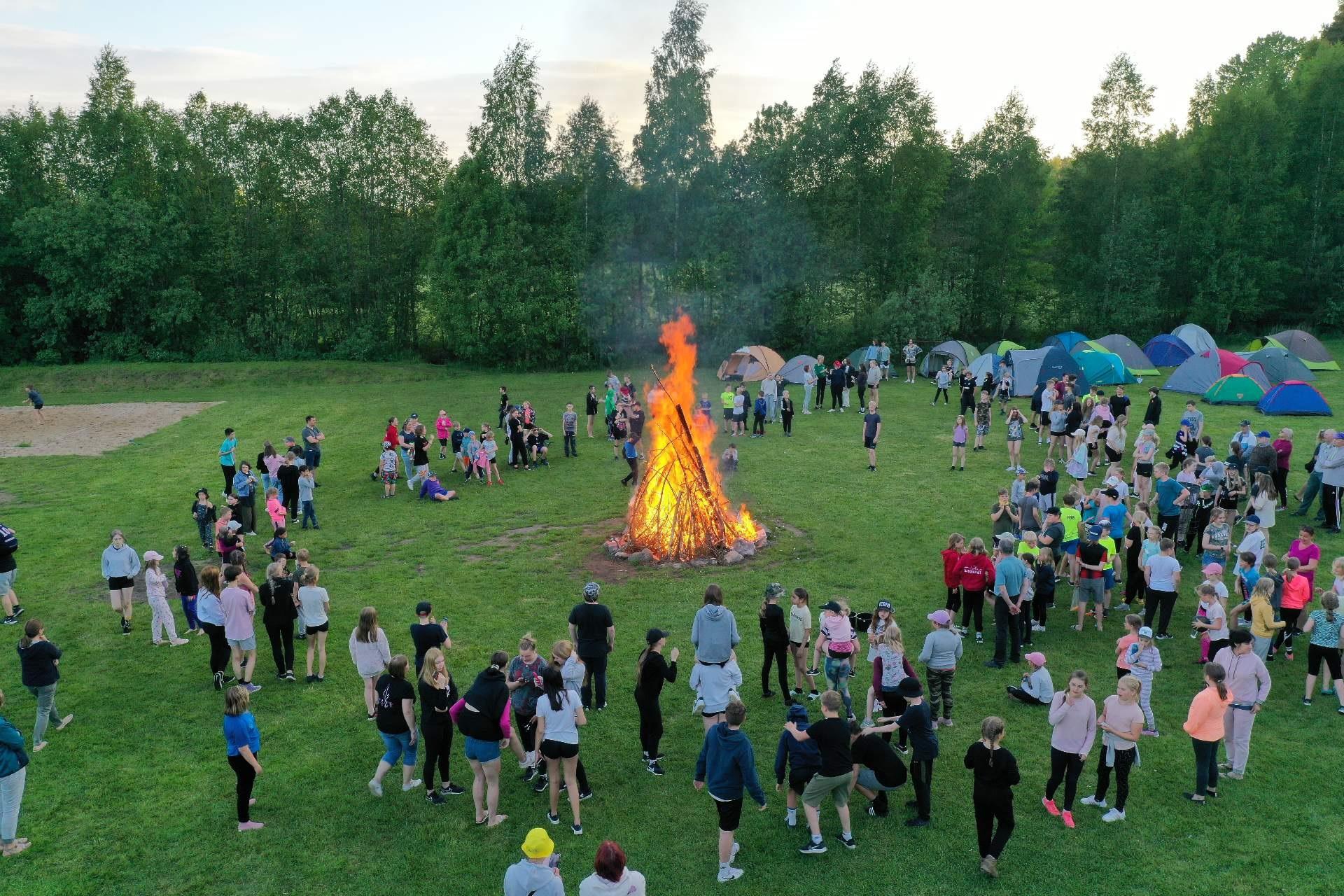
23
Regional Cooperation Magazine
European Youth Goals: Which is your priority (related to the peculiarities of your targeted countries) and why? Which could be the new EYG (now 11) considering this changing society in terms of inclusion and poverty reduction?
When we speak about the European Youth Goals (EYG) linked to young people with intellectual disabilities we should point out that all 11 EYG concern our target group as we are all aiming towards an inclusive society where people off all abilities are offered the same opportunities. But let’s start this dialogue by listing the 11 European Youth Goals developed within the EU Youth Strategy 2019-2027:
• Connecting EU with Youth

• Equality of All Genders
• Inclusive Societies
• Information & Constructive Dialogue
• Mental Health & Wellbeing
• Moving Rural Youth Forward
• Quality Employment for All
• Quality Learning
• Space and Participation for All
• Youth Organizations & European Programs
And by saying that, all young people of determination are entitled to reach each one of these goals. Because they need to integrate in their mindset since this early developmental stage that they have equal opportunities to others.
empower young people to request an equal place at the table of the society by our day-to-day work: unified sports and non-sports activities, unified schools, youth leadership. By giving the proper space and empowering the voice of youth to express their needs, as well as showing the general public that inclusion works is always a good idea. And when you use sports as a catalyst, society opens in a smoother way.
Of course, that some goals are primary to others when we talk about ID youth as their need to be included in society is deeper than others. Inclusive societies are one of the main goals in Special Olympics movement and we
Space and participation for All strengthens young people’s democratic participation and autonomy as well as provides dedicated youth spaces in all areas of society. In Special Olympics we created the Youth Leadership program just to empower ID youth to lead the way to inclusion. By creating national, regional or global Youth Councils and Committees and inviting ID Youth to advocate and speak up at different events offers the environment to stimulate the participation for youth of all abilities to the reorientation of the society. This is also linked to Youth Organizations & European Programs goal which ensures equal access for all young people to youth organizations and European youth programs, building a society based on European values and identity. Special Olympics youth has created in the last years the organizational environment for youth to express and voice up by gathering youth representatives in dedicated spaces, but also inviting them to participate in other environments as youth representatives. Sport clubs and sport organizations or events have the potential to include youth in a natural way. On the sports field, youth of all abilities grow a sense of affiliation to a sports community more easily than in other environments.
24
Regional Cooperation Magazine
Considering this changing society in terms of inclusion and poverty reduction the new EYG (now 11) could be:
11 - Leading Youth
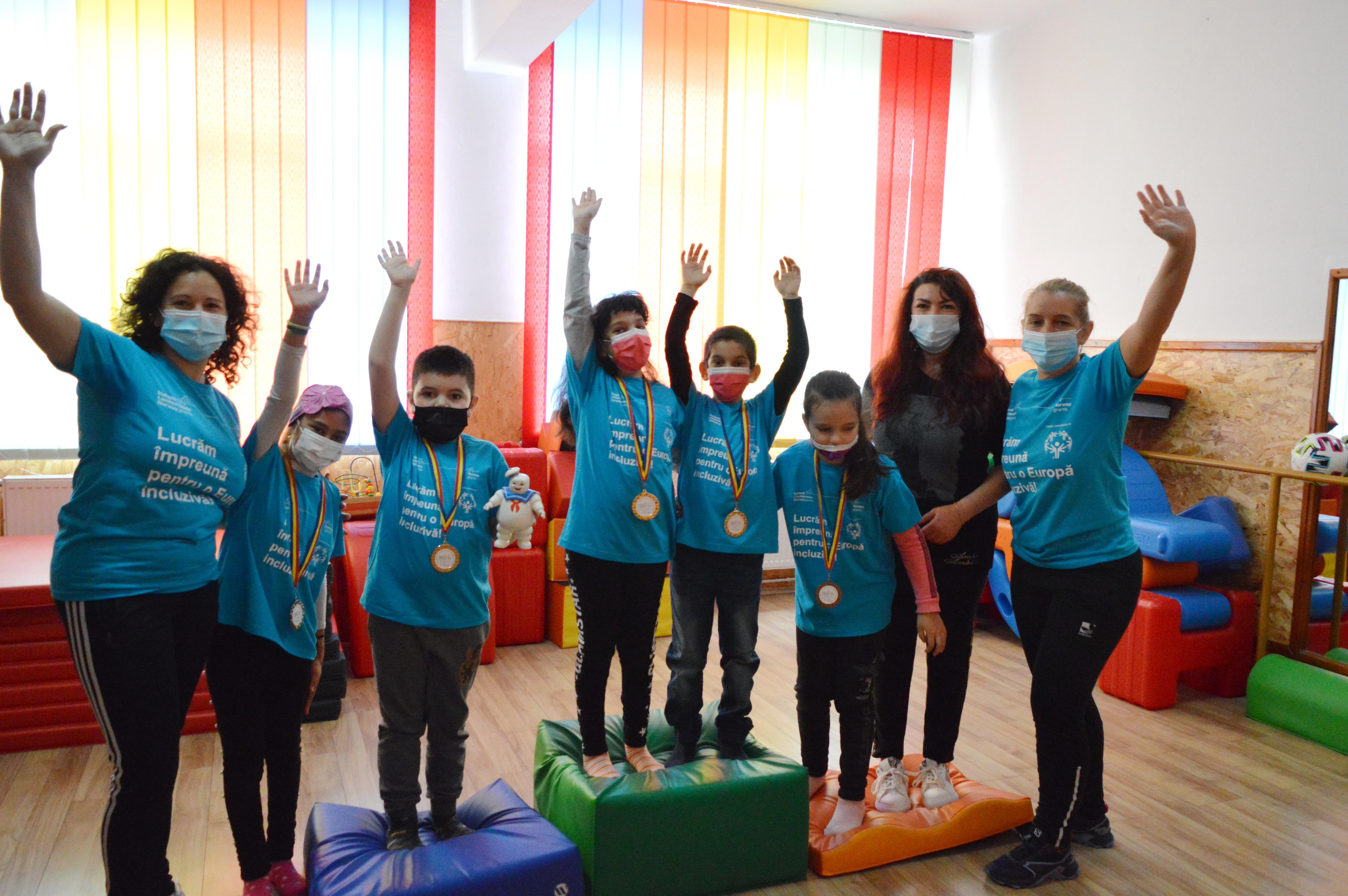
In Special Olympics we put a lot of effort in the power of “empowering” people. When you value the abilities of a person, that person earns a growth of self confidence that puts into move a lot of that abilities towards success. Giving youth the trust of a leading role, celebrating they as champions on the sports field, respecting their voice and inspiring them to express their needs creates more self-aware youth generations that learn how to lead the way to inclusion. We think that the Leading Youth goal is directly linked to the 11th goal Youth Organizations & European Programs and it represents the direct follow up as it is not only necessary to ensures equal access for all young people to youth organizations but also to empower them to became leaders of a unified generation, to offer them skills and abilities to grow into leaders than can be gamechangers of the society into a more inclusive one.

Circular Based Waste Management Project

25
Regional Cooperation Magazine
An October dedicated to European Youth Goals

Each year, young scientists from almost 70 Member States undertake research in the laboratories of the International Centre for Genetic Engineering and Biotechnology. Youth, essential to nurturing a brighter and more equitable future, constitutes the backbone of the ICGEB’s training programmes that have been operating for over three decades across the world.
To celebrate the month of the European Youth Goals, ICGEB hears from some of the Fellows from across Europe who are undertaking research in the laboratories in Trieste, Italy. Their diversity, wealth of experience, and passion for science are testimony to the importance of project funding. Among these are Fellows working in the Molecular Virology laboratory where the TBFVnet: surveillance and research on tick-borne aviviruses (TBFV) project of the Norway Grants Fund is carried out.
Chiara Kalebić, also from Croatia, completed her Master's degree in Functional Genomics at the University of Trieste and in Molecular and Cellular Biology at the University of Rennes1, France. She was awarded a Fellowship in the Molecular Virology Group and subsequently obtained a PhD position in autumn.
Denis Rajnović was born and spent part of his childhood in Sweden, after which his family returned to Rijeka (Fiume), Croatia. “I finished my Bachelor and Master's degree in drug Research and Development at the University of Rijeka. During my Master's, I performed internships in recombinant protein production, recombinant protein interaction analysis and yeast genetics, in Slovenia and Spain. While pursuing my PhD degree in Microbiology at the Autonomous University of Barcelona, I also studied influenza biosensors, as well as in single cell manipulations with FluidFM technology in Zurich, Switzerland.” Under an ICGEB-Elettra fellowship Denis pursues research in structural biology, biophysics, life sciences, and biotechnology to elucidate biological and behavioral characteristics of SARS-CoV-2 variants and to contribute to pandemic preparedness.
Dr. Ljiljana Sjekloća, Postdoctoral fellow in the Molecular Pathology lab, hails from Montenegro. She left her home country at the age of eighteen, driven by the war of the 1990s in former Yugoslavia. "I came to Trieste because of its proximity to Montenegro and for the excellent organisation of scientific courses. I graduated in Molecular Biology and obtained a PhD in structural and functional genomics from the International School for Advanced Studies, SISSA, in Trieste, carrying out research on cytoskeletal proteins at the Elettra Synchrotron.” While a doctoral student at the University of Vienna, Ljiljana became passionate about RNA, an experience that led her to investigate the interactions between proteins and ribonucleic acids, and led to her working in numerous centres of excellence in the field, including the MRC in London, EMBL in Grenoble, the Karolinska Institute in Stockholm, Harvard Medical School, Boston, and NIH Bethesda, to become a specialist in protein and RNA modifications. She is carrying out a research project on amyotrophic lateral sclerosis (ALS), in the Molecular Pathology lab headed by Emanuele Buratti.
Emanuele Orsini, is one of the Italian fellows at ICGEB Trieste who joined the Molecular Virology group to study the interactions between SARSCoV-2 and the host cell. “The family of Coronaviruses includes RNA viruses, causing respiratory diseases with highly epidemic potential. Indeed, the most recent epidemic outbreaks before COVID-19 were caused by coronaviruses (SARS-COV and MERS).
26
Regional Cooperation Magazine
Nonetheless, the risks posed by coronaviruses were underestimated by the research community that kept focusing on topics more relevant for the public health of western countries (such as cancer, cardiovascular or neurodegenerative diseases). The SARS-CoV-2 outbreak dramatically revealed our lack of knowledge. As an ICGEB fellow I am doing my best to give my contribution, however small, to a better understanding of coronavirus biology and to expand our toolbox against emerging diseases. At the same time, I hope the ICGEB will become a leading institution in the global community to establish research priorities.”
Urša Šušnjar Hribar, Junior Research Technician in the ICGEB Molecular Virology Lab, comes from Slovenia. Dr. Šušnjar also pursues projects in science communication and recently featured in the ICGEB documentary "The Goals of Science", for the project on SARS-CoV-2 diagnostics. Slovenia is a partner of the TBFVnet project, as is ICGEB Member State Moldova - whose Fellow Assistant prof. Mariana Ulinici was recently interviewed for the women in science video series.
biomarker signatures for precise cancer treatment underlaying the importance of personalised medicine.

ICGEB training programmes represent an exciting opportunity to interact with people all over the world in state-of-the-art scientific environments and in all the top scientific institutes. Several hundred new ICGEB fellows yearly constitute an ICGEB Alumni body of over 3500 individuals from more than 60 countries around the globe, with an estimated 750 PhD awardees among them.
As we celebrate European Youth Goals, the Arturo Falaschi Fellowship Programme continues to expand in line with the UN 2030 Agenda and the Sustainable Development Goal 4 for Quality Education.

Antonio Mura, PhD student in the Molecular Medicine Laboratory at ICGEB is from Ittiri, a small town in Sardinia, where he graduated in Biotechnology. “I have lived in Trieste since 2017, when I started my Master’s degree in Neuroscience. I’m currently focusing on the characterisation of molecular pathways related to Fam3c, a protein that our laboratory discovered to protect the heart after myocardial infarction. Considering that cardiovascular diseases are the leading cause of death globally, we believe that understanding the key players involved in the beneficial effect exerted by Fam3c is of paramount importance."
Dr. Naida Babić Jordamović is from Sarajevo, Bosnia and Herzegovina, where she worked as Research Associate at the Verlab Research Institute for Biomedical Engineering and Biotechnology. She is a postdoctoral fellow in the Computational Biology Group, where she is working under the supervision of Dr. Silvano Piazza on investigating biological pathways as
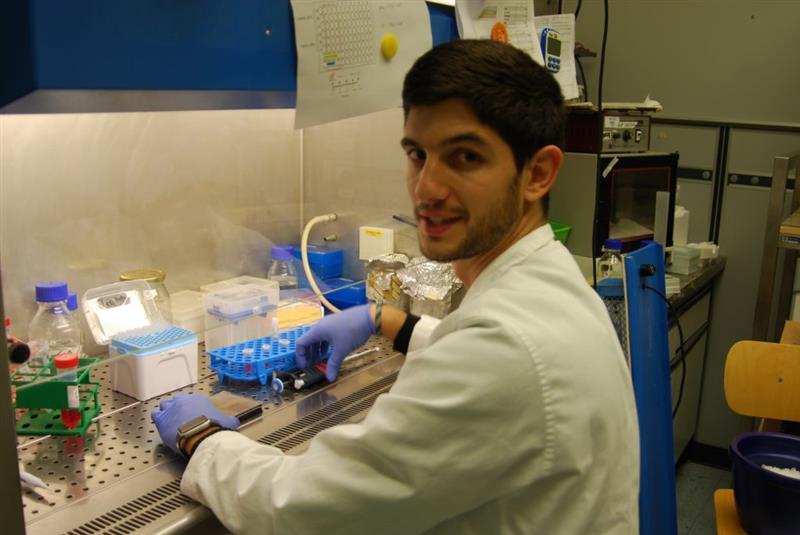
27
Regional Cooperation Magazine



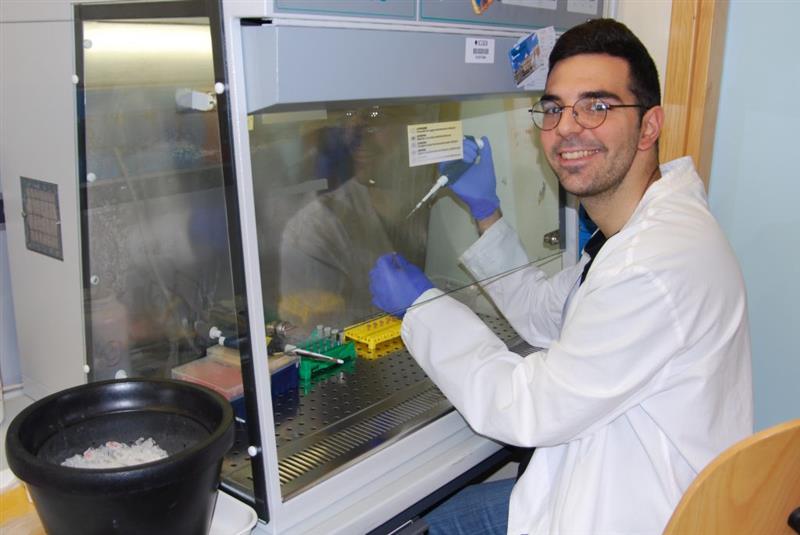



28 Regional Cooperation Magazine TBFVnet project
A young beekeeper in a big project
My desire as a young beekeeper to enroll in the Faculty of Agricultural Sciences and Food in Skopje was to upgrade my knowledge of beekeeping and agriculture in general. I met professor Aleksandar Uzunov at one of the lectures at the beginning of my studies. From his side, I was soon offered to participate in several projects, including the BeeConSel project. Participation in such a large project was something that I should not miss to achieve my goals. I was chosen as a target group by the project and thus participated in the implementation of activities in the field with several other students. The fieldwork allowed me to “dive in” more and more not only in the production of queen bees and the control of their mating but also in the improvement of my work with bees because I was always near two long-term experts, MSc Borche Pavlov and BSc Goran Aleksovski.
One of the significant moments for me in the project was when at the workshop in Osijek (November 2021) I was offered to present the results obtained so far from the research in Macedonia, Slovenia and Croatia. I had stage fright, I must admit, because my listeners were well-known experts in various fields around the world, but I still think I managed to capture the actual situation. After the long winter and setting up the research in several locations in Macedonia, I was offered to support of the Jo Horner method, which was implemented for the first time in Norway. For me, the challenge of going to green Norway meant an opportunity to get to know the country’s culture, the way of living and experiencing the 24-hour day, which for people from my area of residence is far from ordinary. I left in June. I was warmly welcomed there and got the chance to work with different subspecies of bees in the circle of the university apiary. Together with another possible future beekeeper, Camila, we conducted two trials for two weeks. With that, we contributed to getting some initial information about the natural mating of the queen bees there, as well as improving the Jo Horner method for the next season to make it possible.


29
Regional Cooperation Magazine
In the meantime, I left for training in the instrumental insemination of queen bees in Krakow, Poland. I met the colleagues I had previously met during the project, who also participated in the training. The organizers of the training were great, and they had a lot of patience with us while we, unfortunately, had to destroy a million drones in order to get some practice in extracting the sperm. The thought that I will be among the first to introduce instrumental insemination in the practice of Macedonian beekeeping led me not to regret for a moment that, after 8 hours a day, I sat at the microscope and inseminated the queen. The best feeling was when I did it successfully. The course itself lasted a total of 32 hours, and during the breaks, at the apiary where the training was held, I tried to get as much information as possible from the organizers regarding their method of beekeeping, production of queens, honey since it was a big company which invests a lot of energy in improving beekeeping.
After completing the course, I returned to Norway to implement the second attempt that I mentioned earlier. It ended up being great, I wish it had lasted longer so we could get more information, but the weather didn't allow it anymore. At the end of July, I returned to Macedonia and helped finish this season's research by collecting the samples from the last locations. With the end of the season, I’m overjoyed to have been part of such a project and hopefully, when spring rolls around again next season, I’ll be lucky enough to be invited again. With that, I’ll have one more chance to supplement my knowledge in the area of queen bees and their mating, as well as beekeeping in general, and implement it in realising my business ideas.
 Magdalena Jovanovska
Magdalena Jovanovska
BeeConSel Project
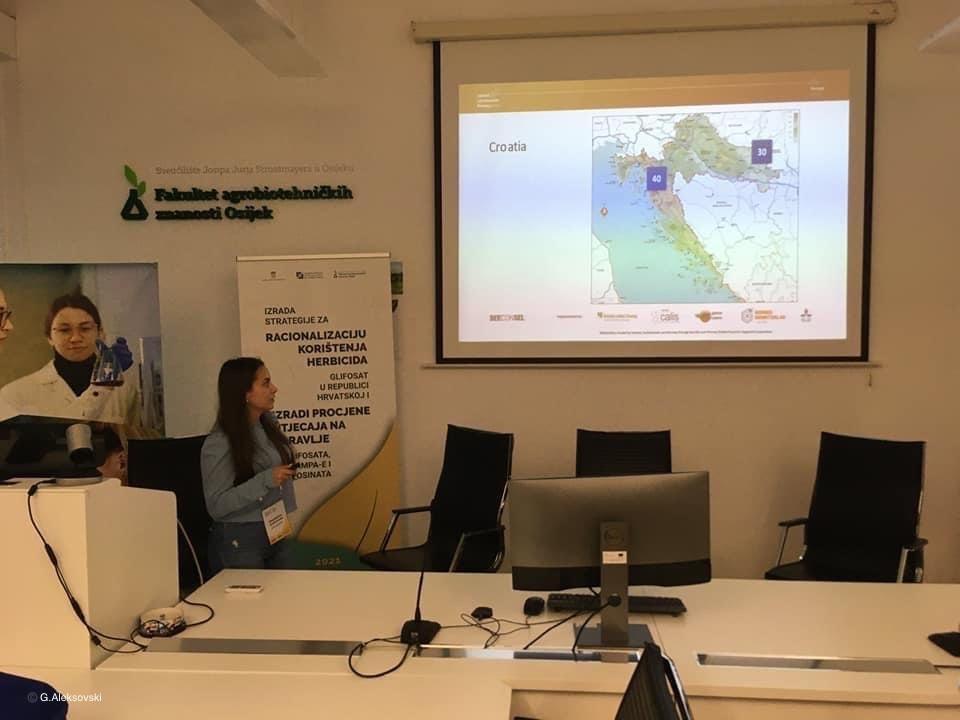
30
Regional Cooperation Magazine
EUTeens4Green - An open call to fund youth-led actions advancing the green transition in EU carbonintensive regions covered by the Just Transition Fund
Are you between 15 and 24 years old?
Would you like to implement an action to help your community benefit from the green transition?
Then apply to EUteens4Green!
The call offers financial support to actions that will advance the green transition in your area (check if you are resident in one of the eligible territories).
most impacted by the transition to climate neutrality, because they are heavily dependent on fossil fuels or on carbon-intensive industries. Youth can help identify people that are at risk of exclusion as a result of the transition, to propose actions for involvement of these people in their territory and to choose topics close to them.
EUTeens4Green call for proposals is now open. It addresses young people between 15 and 24 years old. They can apply as individual, group of individual or association. The deadline is 3 November 2022.

The budget of the call is 700.000 euro and the maximum contribution per project is 10.000 euro. Maximum duration of project is 12 months.
You can submit your application with your friends, other students, or members of your association.
If your application is selected, you will receive up to €10.000 to implement your project!
Apply here until 3 November 2022.
To learn about the project and the application process join a dedicated webinar every Wednesday and Saturday at 18.00 CET from 21 September to 02 November 2022.
The call is managed by a consortium composed of Startup Europe Regions Network (SERN), Youth and Environment Europe (YEE), and CEE Bankwatch Europe with the support of Generation Climate Europe.

Selection and start of young project will be by the end of 2022 and early 2023.
EUTeens4Green offers the opportunity to young people to participate to decision making in EU cohesion policy. It focuses on the regions that will be
31
Regional Cooperation Magazine
Recommendations developed for Norway and Sweden!
side of the border and even cause international conflicts. Examples of such conflicts include the dispute between Mekong riparian states over Laos’ mainstream hydropower dams, the conflict between Ethiopia and Egypt over the Grand Ethiopian Renaissance Dam and many others. This study analyses the national groundwater management systems in Norway and Sweden and their implementation of the EU Water Framework Directive. Emphasis has been placed on international river basin districts and transborder cooperation. The findings offer recommendations for authorities and policy-makers on how they could improve the long-term management and ensuring transparent decision-making of transboundary groundwater management.
Highlights from the study:
• Obligations under international law on groundwater have not been complied.

• National/transnational water management must be transparent.
• Norway and Sweden should delineate groundwater bodies in horizons.
• Joint Norwegian – Swedish mapping project on groundwater should be established.
Groundwater protection is neglected if compared to surface waters. Especially complex is the management of transboundary aquifers. New project study analyses the national groundwater management systems in Norway and Sweden and gives recommendations for authorities and policymakers on how the transboundary groundwater management should be improved.
Insufficient and fragmented management of transboundary aquifers (TBAs) might affect sustainable development both within and beyond a country’s borders. Moreover, it may lead to the worsening of water safety on the other
More in the open access article: https://doi.org/10.1016/j.ejrh.2022.101216
Do you want to know more? Full article is available on EU-WATERRES project’s homepage https://eu-waterres.eu/2022/08/09/drought-in-the-southof-poland/ EU-WATERRES Project

32
Regional Cooperation Magazine
EU-WATERRES newsletter is out!

Our third newsletter aims to summarize the legal aspects of transboundary

cooperation between project partner countries.
the newsletter
will read about:
• Legal aspects on common groundwater management between PolandUkraine, Norway-Sweden and Estonia-Latvia.
• Experience exchange and study visits in Riga and Tartu.
Note that we have just opened our Youtube channel. Subscribe and see the latest video on how it went in Tartu!
it here: https://infogram.com/3-eu-waterres-news-1h7k230jgvemv2x?
33
groundwater
In
you
Read
live EU-WATERRES Project Regional Cooperation Magazine
Strategic partnerships for building a democratic society in Europe

the idea of a comprehensive European Civil Society Strategy to the Czech EU Presidency and representatives of the European institutions.
The conference “Strategic partnerships for building a democratic society in Europe” was organized by our project’s Czech partner Nadace Partnerství, and Czech NGOs Glopolis and Spiralis. Its main goal was to convince decision makers that the issue of civil society needs to be on the agenda of the European Commission for next year.
We want to make the EU listen: civil society organizations strengthen democracy, protect human rights and support vulnerable groups. They are natural allies of EU institutions and the value civil society represents should be protected by European Institutions. And for that we need your help!
The “Reclaim Our Civil Space!” project was brought to life to counter the trends of democratic backsliding experienced in recent years and to create a flourishing civic space across Europe. We equip civil society organizations and activists with skills and tools to defend themselves. We help them strengthen communities of active citizens and participate in public matters. We build their capacities and create cross-border networking and cooperation.
But countering shrinking civic space needs a systematic approach, and we believe that the voice of civil society needs to reach the European level. Therefore, we went to Prague with our partners to state our case and present

Share your ideas with us! We have drafted a set of recommendations and we need your contribution to it! Help us improve it with your comments and let’s build a thriving civic space together!
Read and comment on the strategy here!
Reclaim Our Civil Space! Project
34
Regional Cooperation Magazine
Finalist with aroma flavor
Hardangerbonden is once again among the finalists in Det Norske Måltid. The cider named Store Marit (Big Marit) is this year's finalist. It's a cider with hops, made with Aroma apples. This is one of the distinctive features of Hardangerbonden's ciders; they are all made from one apple varieties – to highlight the unique flavor of each variety.
Hardangerbonden (The Hardanger Farmer) is Ingrid. Her family live on the farm Sekse, on the east side of the Sørfjorden, a part of the Hardangerfjorden. Ingrid took over the farm eight years ago, and for the last two years she has been production cider and apple lemonade.

– All the apples are from our own farm.
They started out small in 2020. In 2021, they bottled and sold cider and lemonade for more than two million kroner, without a completed production area. This year, both the roof and walls, tanks and process line are in place. The goal is a tripling of sales.
Siderklynga Hardanger provides access to new knowledge, exchange of experience and brainstorming - and increased attention to Cider from Hardanger.
– We only use apples from our own farm to the cider and lemonade because we want to have full control over the raw materials. This naturally limits the growth targets. Just as fully, the goal is for Drengen, who we call my husband Bård, to work full-time with the production. The dream has been to create something on the farm, to be able to live off the farm without having to work on the side. says Ingrid.
The development within Norwegian cider is great. A considerable amount of the farms surrounding the Hardangerfjord have established a full time in cider production.
The desire to be part of something bigger was important for Hardangerbonden. The community in Hardanger Siderprodusentlag and

35
Regional Cooperation Magazine
Clean and clear taste
– We grow the apple varieties Aroma, Summerred, Gravenstein, Idunn, Discovery and Rubenstep. They all have their own characteristics. It is these characteristics that we want to keep in the cider and lemonade, says Ingrid.


ciders, the probability is greater that they will refrain from choosing another, concludes Ingrid.
Being a finalist in Det Norske Måltid proofs that the pure flavors also appeal to discerning judges' palates. Last year, the cider Drengen was among the finalists. This year, it is Store Marit.
– The cider category is one of the largest, with many participants. We are impressed that Hardangerbonden, which is a relatively newly established producer, has managed to deliver products in the absolute top tier two years in a row. I would also like to add that the judges were impressed by the quality of all the ciders participating in this year's competition, says managing director Kristin Austigard in Det Norske Måltid.
Taste is also central to the project Uncorking rural heritage, an EEA project in which, among others, the Hardanger Siderprodusentlag participates. In connection with this project, the sensory panel at Nofima have assessed a selection of ciders, including Bonden produced by Hardangerbonden. Sensory expert Mats Carlehög says that Bonden lives up to what you expect from a classic cider from Hardanger. Fruity, green and notes of minerals. In addition, it is sour and fresh.
The project participants are: Nova Gorica University (UNG), Slovenia, the municipality of Obcina Ajdovscina, the city of Pozega, Polytechnic in Pozega, Tikves Winery, NIBIO Ullensvang, Nofima, Hardangerrådet and Hardanger Siderprodusentlag.

Uncorking rural heritage: indigenous production of fermented beverages for local cultural and environmental sustainability Project
Another key part in the project is to establish a cider taste panel in Hardanger. This panel will be tasked with ensuring the quality of all ciders from the "Ciders from Hardanger" brand.
– It is important that all ciders from Hardanger are good. A taste panel that ensures the quality will be a highly valued tool, important for all of us producers. Because many consumers place the cider from Hardanger in one and the same category. If they are disappointed with one of the Hardanger
36
Regional Cooperation Magazine
Training as a paramount feature in P/CVE initiatives
Preventing and countering radicalisation leading to violent extremism has been identified as a European and global priority, especially in the face of growing and ever-changing security challenges. Recent years have demonstrated how new forms of terrorism and violent extremism have been evolving, primarily benefiting from the growth of the digital space, calling for national justice systems to adapt.
In this quest for adaptation and effectiveness, the European Commission stressed its priorities, re-emphasising how human resources play a vital and indisputable role in the success of effective P/CVE work. Consequently, and building on top of the Lisbon Treaty, training has been prioritised as a critical step to build trust and competencies in an EU-wide justice.
In fact, after the first EU Judicial Training Staff Strategy in 2011 and its fairly positive evaluation in 2019, a renewed EU Judicial Training Strategy was put forward from 2021 to 2024.


To adequately face the increased and renewed challenges posed to the Union (namely attacks on fundamental rights and freedoms, the subsequent deterioration of the rule of law, the current digitalisation of societies, and the prospect of its extension for Western Balkan countries), the training of justice professionals requires strengthening. By extending its scope and nature, training offers on new and up-to-date topics targeting new professions, and geographical locations are expected to improve P/CVE work.
Prison and probation staff were pinpointed as a new target audience. Their training is paramount to guaranteeing fundamental rights while ensuring the success of rehabilitative and reintegrative efforts. However, the last decade’s development strongly changed the P/CVE landscape, creating a more shattered, diversified and complex scenario, calling for local efforts to be catalysed. Moreover, radicalisation often takes place locally, thus requiring a continuum of support and intervention for effective prevention. For such, mobilising communitarian practitioners is paramount.
Beyond questioning what actors to involve when working to increase the effectiveness of P/CVE work, another vital topic to consider is the quantity and quality of the training delivered to prison, probation and communitarian frontline practitioners. Providing training is not an end in itself since its utmost quality is what guarantees its objectives. An evidence-based and grounded methodology is essential, from the design to the implementation and evaluation stages.
Nevertheless, training justice professionals is demanding and should account for these practitioners’ daily needs and challenges. Accounting for these needs, the European Commission stresses the employment of diverse learning technics within a Blended learning scheme, including face-to-face residential activities alongside e-Learning tools.
37
Regional Cooperation Magazine
Accessible learning tools should be prioritised, respecting practitioners’ availability and diversity, whilst mobilising new technologies to uphold the quality of training. In this sense, training cannot just be about delivering information, but it should be about building knowledge towards practice. These concerns are being actively tackled by the HOPE “Holistic Radicalisation Prevention Initiative” project, which has the primary objective of creating a European Learning Hub on radicalisation.
The project is currently developing newly-designed, innovative, multidisciplinary and tailored approaches to training. These efforts aim to raise awareness, foster overall knowledge and enhance competencies with a regional focus. This training strives to improve the skill set of prison, probation and communitarian practitioners to ultimately increase their work efficiency with vulnerable, at-risk or radicalised individuals. It also stresses the importance of creating a continuum of intervention and support.

HOPE’s training offer contemplates interactive, practical and accessible learning methods that have been prioritised to respond to justice professionals’ actual and assessed needs and maximise their performance. The initiative is focusing its efforts regionally, following the Union’s priority to train professionals from the Western Balkan countries. Considering this focus, HOPE’s developments are tailored to justice and communitarian professionals from Bulgaria, Romania, Serbia and Slovenia, thus guaranteeing these countries’ further alignment with the Union’s goals.
But training can only be relevant if effective. Thus, it is essential to understand how and to which extent the training met practitioners’ needs and improved their daily practices. In fact, following the increase of training offers in P/CVE, understanding their quality and, most importantly, their usefulness at the local and national levels has become imperative. As a result, training efforts should encompass follow-up schemes to evaluate the learning competencies retained and used. This evaluation needs to care about amplifying the voice of the professionals targeted and assessing the impacts of the investment made.
Thus, and yet again aligning with EU Judicial Training Strategy, the HOPE project will work to evaluate its training offer. By setting various indicators and evaluation methods, the results of the pilot training course will be thoroughly analysed to ensure its quality whilst serving the project’s longterm sustainability.

Considering the above, staff training cannot be considered optional and timelimited. Instead, it should be a continuous and ongoing investment whose responsibility is to be shared between the States, training providers, and national and European organisations, requiring a more significant commitment from all concerned.
The HOPE project reflects this continuous investment, as the project is working to cement a learning hub, strengthen partnerships, and activate multi-agency cooperation as an essential step for effective P/CVE work. Moreover, the project has its own online network, which is open to anyone involved in P/CVE, including prison and probation staff, community organisations’ professionals working closely with the criminal justice system, law enforcement agents, judicial practitioners, trainers and educators, and
38
Regional Cooperation Magazine
researchers/academics, aiming to build relevant knowledge and partnerships.
The HOPE “Holistic Radicalisation Prevention Initiative” is led by IPS_Innovative Prison Systems (Portugal) in partnership with the University College of the Norwegian Correctional Service, Agenfor International Foundation (Italy), the Euro-Arab Foundation for Higher Studies (Spain), the Bulgarian Association for Policy Evaluation, the General Directorate for the Execution of Sentences (Bulgaria), the Bucharest-Jilava Penitentiary (Romania), the Helsinki Committee for Human Rights (Serbia) and the Slovenian Probation Administration.
For more information about the HOPE project, please visit www.hoperadproject.eu References:
Adams, T. (2019). Approaches to countering radicalisation and dealing with violent extremist and terrorist offenders in prisons and probation. RAN.
Dean, C. & Kessels, E. (2018). Compendium of good practices in the reintegration of violent extremist offenders. Global Center on Cooperative Security.
European Comission. (2020). Ensuring justice in the EU — a European judicial training strategy for 2021-2024.

Global Counter Terrorism Forum. (2009). Good practices on community engagement and community-oriented policing as tools to counter violent extremism. GCTF.
United Nations Office on Drugs and Crime (2016). Handbook on the management of violent extremist prisoners and prevention of radicalisation to violence in prisons. Criminal Justice Handbook Series, UNODC.
39
HOPE Project
Regional Cooperation Magazine
Contributors & Credits
From the Fund Operators
Mateusz Wiśniewski
Francesca Bombarda Sara Barbi External Contributors Thomas Mc Grath
From the Projects
Magdalena Jovanovska Maritsa Kissamitaki Karola Jaanof Eva Sobotka Inga Retike Ierotheos Zacharias Bálint Farkas Špela Kodre Fabio De Pascale Suzanne Kerbavcic Tanja Dimitrijević Silvia Bernardo Maritsa Kissamitaki Monica Tăutul
From the Youth Employment Fund
YES! Project; YOUTHShare Project; Blue Generation Project Joerg Schoolmann; Dr. Yiorgos Alexopoulos; Christos Papadopoulos; Laura Pacareu Flotats; Ioannis Papageorgiou
Director Gian Luca Bombarda
The contents of the Magazine are the sole responsibility of the authors and can in no way be taken to reflect the views of the Donors.
40 Regional Cooperation Magazine
Cover image: TBFVnet project
born with the intention of sharing the results and updates of the projects participating to the Fund to showcase the main achievements of implemented activities.
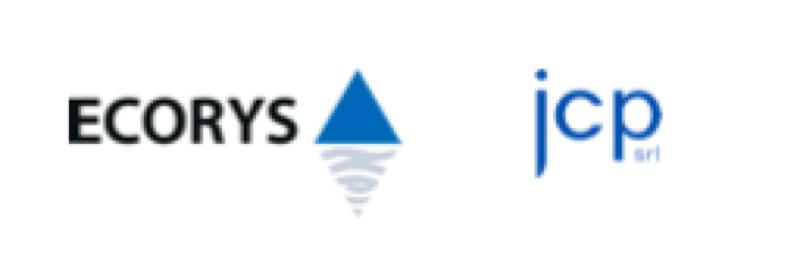
Follow us: regionalcoopmag.net

Contact us: themag@regionalcoopmag.net
FUND OPERATED BY:
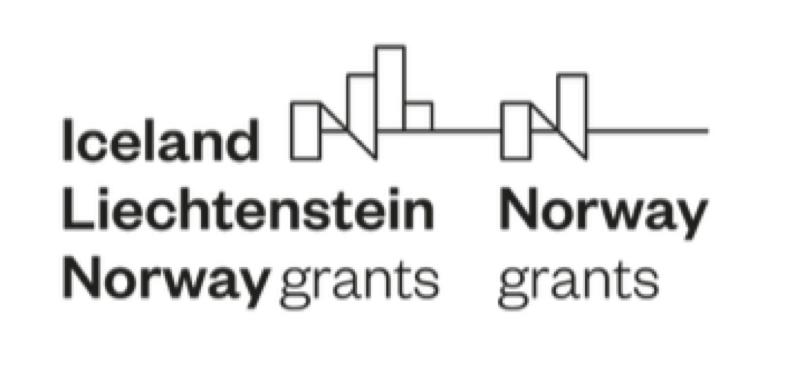
41 Regional Cooperation Magazine




















































